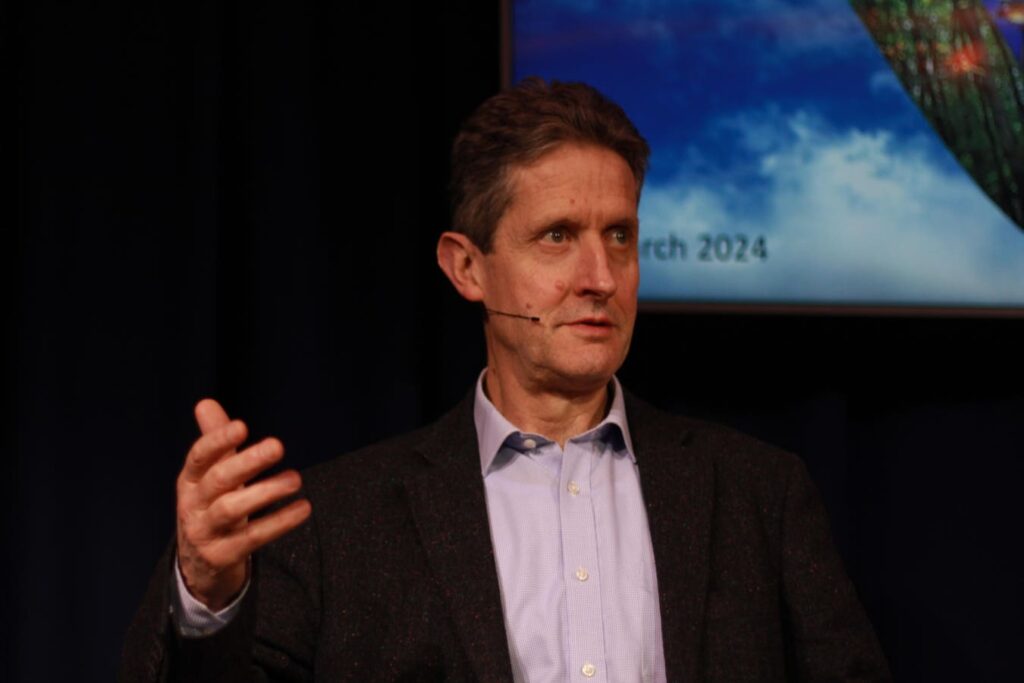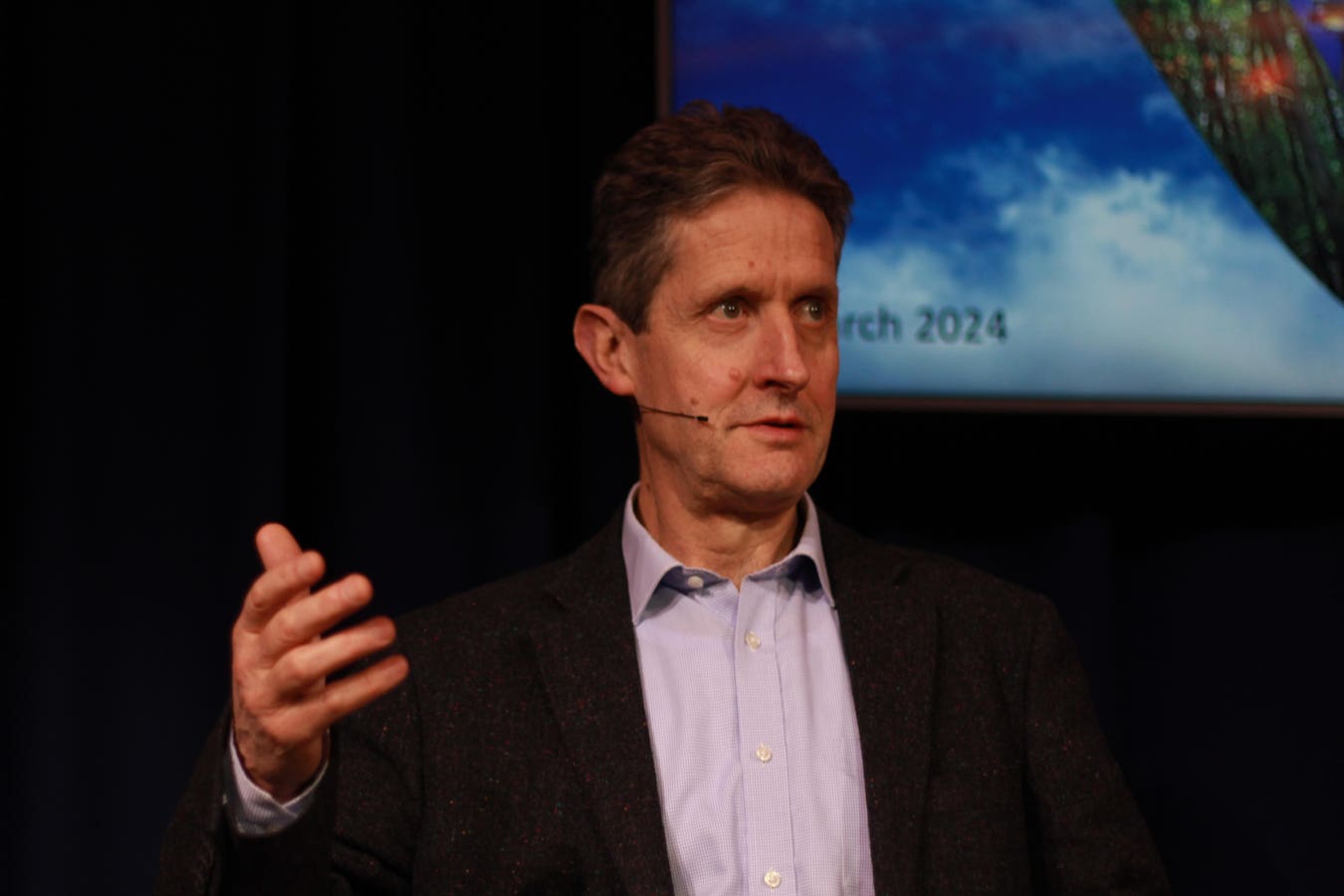This week I had the pleasure of meeting Myles Allen. He is Head of Atmospheric, Oceanic and Planetary Physics in the Department of Physics, University of Oxford, and Professor of Geoscience in the School of Geography and Environment. He’s been studying how human and natural influences contribute to climate change since the early 1990s, served on the UN Intergovernmental Panel on Climate Change (IPCC) for its 3rd, 4th and 5th Assessments, and was a Coordinating Lead Author for its special report on ‘the impacts of global warming of 1.5 °C above pre-industrial levels,’ and has been dubbed by the BBC “the physicist behind net zero”. In short, his scientific credentials regarding climate change are superb.

Professor Myles Allen Delivering The Gresham Lecture on May 21, 2024 | GRESHAM COLLEGE
But unlike many science professors, Professor Allen is bravely wading into the world of climate policy. The timing of my meeting with Professor Allen was fortuitous. It was the day before he gave a lecture on May 21, 2024, in his capacity as the Frank Jackson Professor of the Environment as part of the annual series of lectures hosted by Gresham College in the City of London. Gresham (b. 1519, d. 1579) was an English merchant, financier, and founder of the Royal Exchange. He started these lectures to ensure the emerging merchant classes were culturally enriched, as well as being versed in the latest science and technology.
The title of Professor Allen’s lecture is “A Just and Inclusive Net Zero.” You can also view it online, which I highly recommend. The lecture is both global in its ideas and local in terms of the climate change debate taking place in the UK. I am less familiar with this than I am in the United States, and it was through this lens that I read and then listened to his lecture. My overall impression is how pragmatic and non-ideological it is. Professor Allen is no more an apologist for the fossil fuel industry than he is a supporter of the fossil fuel haters. Neither group brings value to the discussion of how to address climate change. Professor Allen does.

Sir Thomas Gresham | MERCERS COMPANY
While I can’t do justice to his full lecture in this brief summary, here are four points that leaped out to me.
The first is he notes that “in the Paris-aligned scenarios of the IPCC, we are still using fossil fuels, at around one-quarter of the current rate, in 2100, long after the date of net zero.” Today’s world population of eight billion people will have grown to nearly 10 billion, with hopefully a larger percentage leading lives closer to what is enjoyed in the developed world. That means a LOT of fossil fuels. Those who harbor the fantasy that we still have time to achieve our climate goals simply by phasing out fossil fuel use need to get real. “One of the most dangerous myths is that achieving net zero is actually going to be really cheap because carbon-free, instantly-dispatchable energy” will soon take care of all of our energy needs. Nope. Even with the best of battery technologies it will be intermittent, and we’ll need natural gas and nuclear for the baseload.
People also need to be realistic about some of the barriers to reducing fossil fuel use as rapidly as possible, with permitting being the number one in my mind. Environmentalists protesting transmission lines for bringing renewable power into the grid are part of the problem, not part of the solution. A great local example for me is the Northern Pass project for bringing cheap hydro power from Canada to Massachusetts, which I have written about with John Skjervem, the CIO of Utah Retirement Systems. Permitting extends to domestic mining of the cobalt and rare earths for battery and renewable energy technologies in order to ensure energy security and not being dependent on places like China, Russia, and the Democratic Republic of Congo for getting them.
SUBSCRIBE TO OUR NEWSLETTER
Subscribe our newsletter to receive the latest news, articles and exclusive podcasts every week


